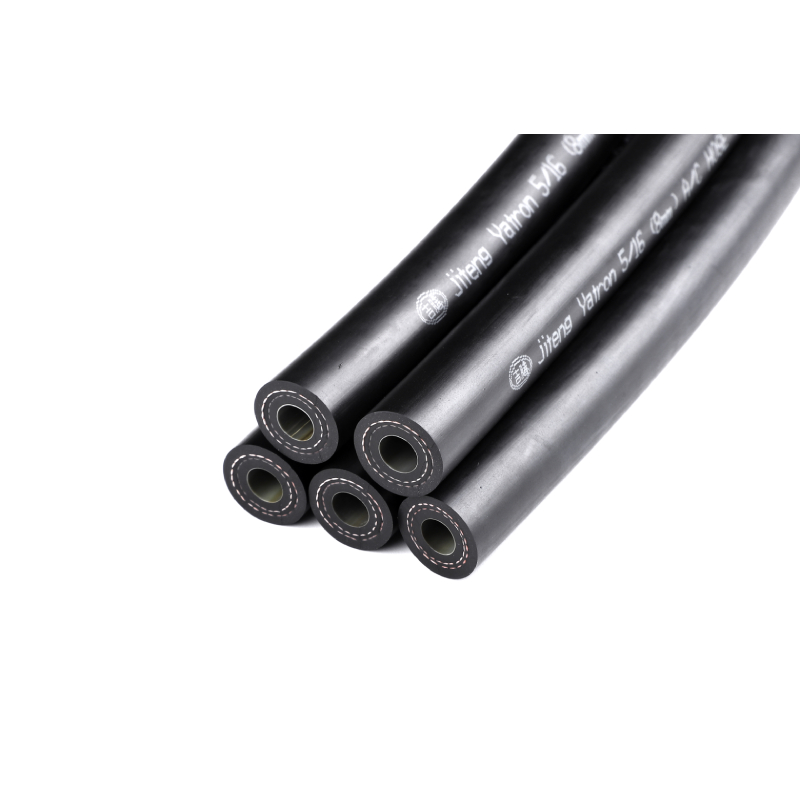Innovative Design for Enhanced Flexibility in AC Hose Performance and Reduced Barrier Technology
Ліст . 06, 2024 20:19 Back to list
Innovative Design for Enhanced Flexibility in AC Hose Performance and Reduced Barrier Technology
The Evolution of Reduced Barrier AC Hoses Enhancing Vehicle Performance and Sustainability
In the automotive industry, the efficiency and functionality of air conditioning (AC) systems are crucial for ensuring passenger comfort and satisfaction. As vehicle technology progresses, efforts to improve AC systems have led to the development of reduced barrier AC hoses. These innovative hoses not only enhance the performance of air conditioning systems but also contribute to environmental sustainability by minimizing refrigerant leakage.
Understanding Reduced Barrier AC Hoses
Reduced barrier AC hoses are designed with advanced materials that limit the permeation of refrigerants. Traditional AC hoses, while functional, often allow some refrigerant to escape into the atmosphere due to microscopic holes and insufficient material integrity. This issue is compounded over time as hoses age and degrade, leading to increased maintenance costs and potential environmental harm.
Reduced barrier hoses utilize multi-layer constructions that include inner linings with reduced permeability, making them far superior to regular hoses. The outer layers provide additional robustness against environmental factors such as heat, ozone, and abrasion. By significantly lowering the refrigerant loss, these hoses extend the lifespan of AC systems and align with automotive manufacturers' efforts to comply with stricter emission regulations.
The Benefits of Reduced Barrier AC Hoses
1. Enhanced Seal Integrity The primary advantage of reduced barrier AC hoses is their improved seal integrity. By minimizing refrigerant leakage, these hoses help maintain the efficiency of AC systems, ensuring that vehicles operate at optimal performance levels.
2. Environmental Impact With global awareness growing around climate change and environmental issues, the use of reduced barrier hoses represents a step towards sustainability. Refrigerants used in AC systems can be potent greenhouse gases, and reducing leaks contributes significantly to lowering the automobile industry's overall carbon footprint.
reduced barrier ac hose

3. Cost-Efficiency Although reduced barrier AC hoses may come at a higher initial cost, their long-term benefits outweigh the expense. By minimizing refrigerant loss, vehicle owners can experience lower maintenance costs and improved fuel efficiency since well-maintained AC systems consume less energy.
4. Regulatory Compliance As governments around the world implement stricter regulations regarding vehicle emissions, the use of reduced barrier hoses allows manufacturers to meet these standards. This alignment not only enhances corporate reputation but also contributes to a healthier environment.
Trends and Innovations
The automotive industry is continually evolving, and the integration of reduced barrier AC hoses is a part of a more significant trend towards high-efficiency components. Manufacturers are increasingly investing in research and development to create hoses that not only reduce refrigerant leaks but also improve overall vehicle performance.
Additionally, the push for electric vehicles (EVs) presents an opportunity for reduced barrier AC hoses. As EVs often require efficient thermal management systems to regulate battery temperatures, the demand for high-performance AC components is expected to rise. Reduced barrier hoses will play a vital role in these systems.
Conclusion
Reduced barrier AC hoses represent a meaningful leap forward in automotive technology, balancing performance improvements with environmental responsibility. They offer significant advantages, including enhanced seal integrity, reduced environmental impact, cost savings, and better compliance with regulatory frameworks. As the automotive industry continues to innovate in response to changing regulations and consumer demand, the adoption of reduced barrier AC hoses will likely become standard practice for vehicle manufacturers aiming to produce efficient and sustainable vehicles.
In summary, as we look to the future of automotive design and functionality, reduced barrier AC hoses stand as a testament to the industry's commitment to quality, efficiency, and environmental stewardship. Their role in enhancing vehicle performance while promoting sustainability cannot be overstated, and they will undoubtedly remain integral to the ongoing evolution of automotive technology.
